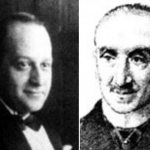Critique without ontology: Genealogy, collective subjects and the deadlocks of evidence
In the past few years, the number of migrant deaths in the Mediterranean Sea has dramatically increased due to the strengthening of border controls and a deliberate politics of migration containment put into place by the EU in cooperation with third countries. In 2018, according to UN Refugee Agency [UNHCR] estimations, an average of six […]








